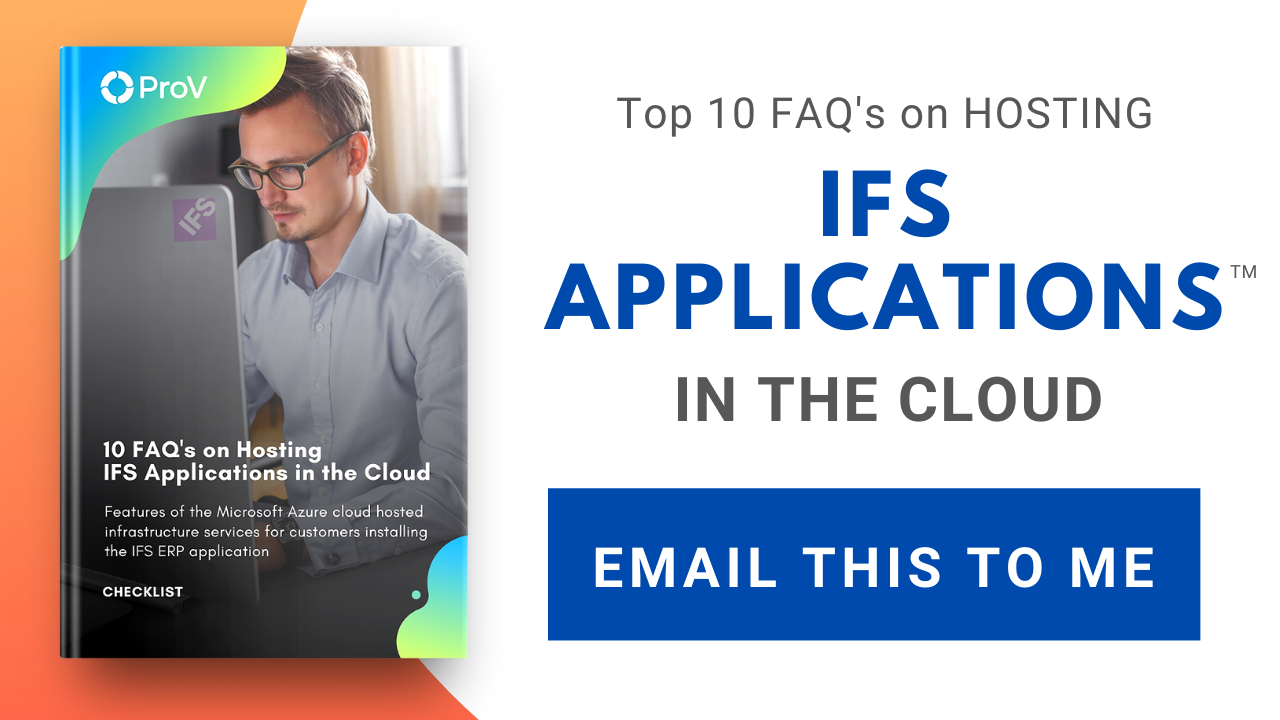IFS Applications 10 is the latest and greatest implementation of IFS’ software suite and is designed to provide a complete solution for global organizations. Click here to read more. Some business leaders might not see the point of upgrading because their current implementation seems to be functioning adequately, but upgrades and general maintenance are critical to the proper functioning of IFS solutions. However, many organizations find the prospect of an IFS Upgrade daunting. Yet, with the help of a Managed Service Provider like us, and these 9 things to consider when thinking about an upgrade, an IFS upgrade can feel like just another software update.
- Upgrade obstacles exist but so do significant opportunities
Regardless of what version of IFS you are on, an upgrade decision will eventually be in your future. Upgrade projects are often seen as non-strategic initiatives that are required to stay current and maintain support. These projects can place an undue burden on the organization in the form of cost, the use of resources and risks that the organization would rather not take. Despite these problems, there are many opportunities to streamline the upgrade process that will lead to efficiencies in some areas and therefore positively impact your bottom line.
- Create an inventory of licensed modules VS modules in use
For many organizations the original implementation of IFS was rapid and not all the licensed modules were deployed. Prior to an upgrade, take inventory of what IFS modules your organization is permitted to use. Analyze exactly what the unused modules do and see if there is a benefit in configuring them for your organization.
- Analyze current functionality and business processes
Once again, for many organizations the original implementation of IFS was rapid. There is a good chance that not all features of the software were implemented effectively and, as a result, the system is being underutilized. In addition, some of the functionality that is in use may not be working correctly, or business processes might have been designed in a way that now seems cumbersome. Interview the user community to find out what are the areas of concern well in advance of an upgrade.
- Update policies, procedures, and documentation
Often old solutions fail to keep pace with the changing needs of a business. Often these changes are not documented, or the existing documentation has not been updated. A review of an organization’s business processes should be compared to the documentation, and any updates that are required should be made.
- Analyze workflows
Most likely the workflows that are in place have been functioning since you went live on the previous version of IFS Applications. Now is the time to see if the workflows are fulfilling the business’ needs. They may need to be tweaked or completely redesigned. See if new enhancements in the latest release will impact existing workflows.
- Assess reports and forms
Are users satisfied with the existing reports and forms within the current ERP solution? Is senior management satisfied with the reporting that they receive? An inventory of reports/forms should be taken to see the number of reports or forms that are being generated. This inventory should be analyzed to determine if adjustments need to be made.
- Establish a strong project team
A strong project team will consist of a project manager, a senior functional representative for each key module or area being upgraded, and senior IT resources to support the technical effort. Prior to the upgrade project seek out potential project team members. Choose people who want to be involved, have the appropriate skill set and will work well with the other team members.
- Perform resource planning
What resources do you have that can work on the upgrade project? Which resources can be dedicated, and which resources can only be deployed part-time? Are there any other activities that need to be considered that could affect the availability of those potential resources? These questions are important as they will affect timelines, project charters, and general project planning.
- Establish executive buy-in and an execution strategy
Align the goals and objectives of the upgrade and the organization in order to meet the business’ objectives. Create a strong business case to ensure executive agreement. Build the upgrade project charter which will serve as your final upgrade plan. It will include project objectives, scope and timeline, the budget, the change management strategy, the infrastructure plan, and the project roles and responsibilities.
Why ProV?
ProV is a premier IFS Managed Services Provider and can help organizations of all sizes with their IFS implementations, upgrades and support. Ready to take the plunge? Request a free consultation today! If you have any questions don’t be afraid to leave a comment below.

